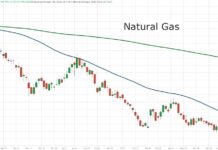“Every week is shark week in the Trump White House,” wrote The Hill contributing author Brad Bannon in August of 2018.
A recent Brookings Institution study shows that the turnover in the Trump administration is significantly higher than during any of the previous five presidential administrations.
The concern is that for a president without government experience, a rotating cast of top administration officials and advisors presents a unique challenge for the effective advancement of U.S. policies and global leadership. Bannon (no relation to former White House Chief Strategist Steve) adds, “Inexperience breeds incompetence.”
John Kelly – White House Chief of Staff
James Mattis – Secretary of Defense
Jeff Sessions – Attorney General
Rex Tillerson – Secretary of State
Gary Cohn – Chief Economic Advisor
Steve Bannon – White House Chief Strategist
Anthony Scaramucci – White House Communications Director
Reince Priebus – White House Chief of Staff
Sean Spicer – White House Press Secretary
James Comey – FBI Director
Although the sitting president has broken just about every rule of traditional politics, it is irresponsible and speculative to assume either ineffectiveness or failure by this one argument. One area of politics that falls within my realm of expertise is a “rule” that Donald Trump has not yet broken; firing the Chairman of the Federal Reserve.
Following the December Federal Open Market Committee (FOMC) meeting in which the Fed raised rates and the stock market fell appreciably, Bloomberg News reported that President Trump was again considering relieving the Fed Chairman of his responsibilities. This has been a continuing theme for Trump as his dissatisfaction with the Fed intensifies.
Not that Trump appears concerned about it, but firing a Fed Chairman is unprecedented in the 106-year history of the central bank. Having tethered all perception of success to the movements of the stock market, it is quite apparent why the president is unhappy with Jerome Powell’s leadership. Trump’s posture raises questions about whether he is more worried about his barometer of success (stock prices) or the long-term well-being of the economy. Acquiescing to either Trump or a genuine concern for the economic outlook, Chairman Powell relented in his stance on rate hikes and continuing balance sheet reduction.
Clamoring for Favor
Notwithstanding the abrupt reversal of policy stance at the Fed, President Trump continues to snipe at Powell and express dissatisfaction with what he considers to have been policy mistakes. Before backing out of consideration, Steven Moore’s nomination to the Fed board fits neatly with the points made above reflecting the President’s irritation with the Powell Fed. Moore was harshly critical of Powell and the Fed’s rate hikes despite a multitude of inconsistent remarks.
Shortly after his nomination, Moore and the President’s Director at the National Economic Council, Larry Kudlow, stated that the Fed should immediately cut interest rates by 50 basis point (1/2 of 1%). Those comments came despite rhetoric from various fronts in the administration that the economy “has never been stronger.”
Now the Kudlow and Moore tactics are coming from within the Fed. St. Louis Fed President James Bullard dissented at the June 19th Federal Open Market Committee meeting in favor a rate cut. Then non-voting member and Minneapolis Fed President Neel Kashkari publicly stated that he was an advocate for a 50-basis point rate cut at the same meeting.
All this with unemployment at 3.6% and GDP tracking better than the 10-year average of 2.1%. Given Trump’s stated grievance with Powell, Bullard and Kashkari could easily be viewed as trying to curry favor with the administration. Even if that is not the case, to appear to be so politically inclined is very troubling for an institution and board members that must optically maintain an independent posture. It is unlikely that anyone has influence over Trump in his decision to replace or demote Powell. He will arrive at his conclusion and take action or not.
continue reading on the next page…







